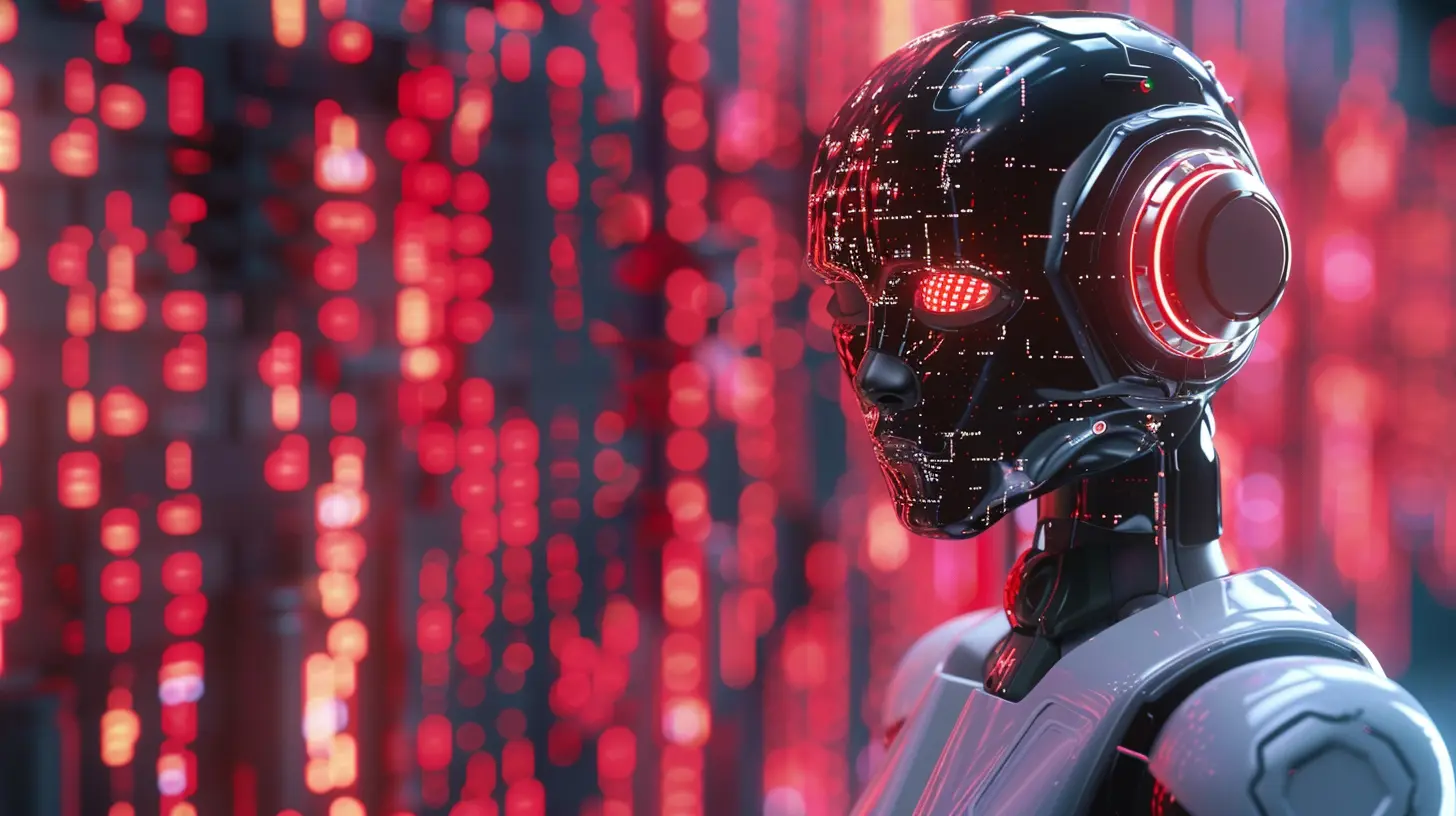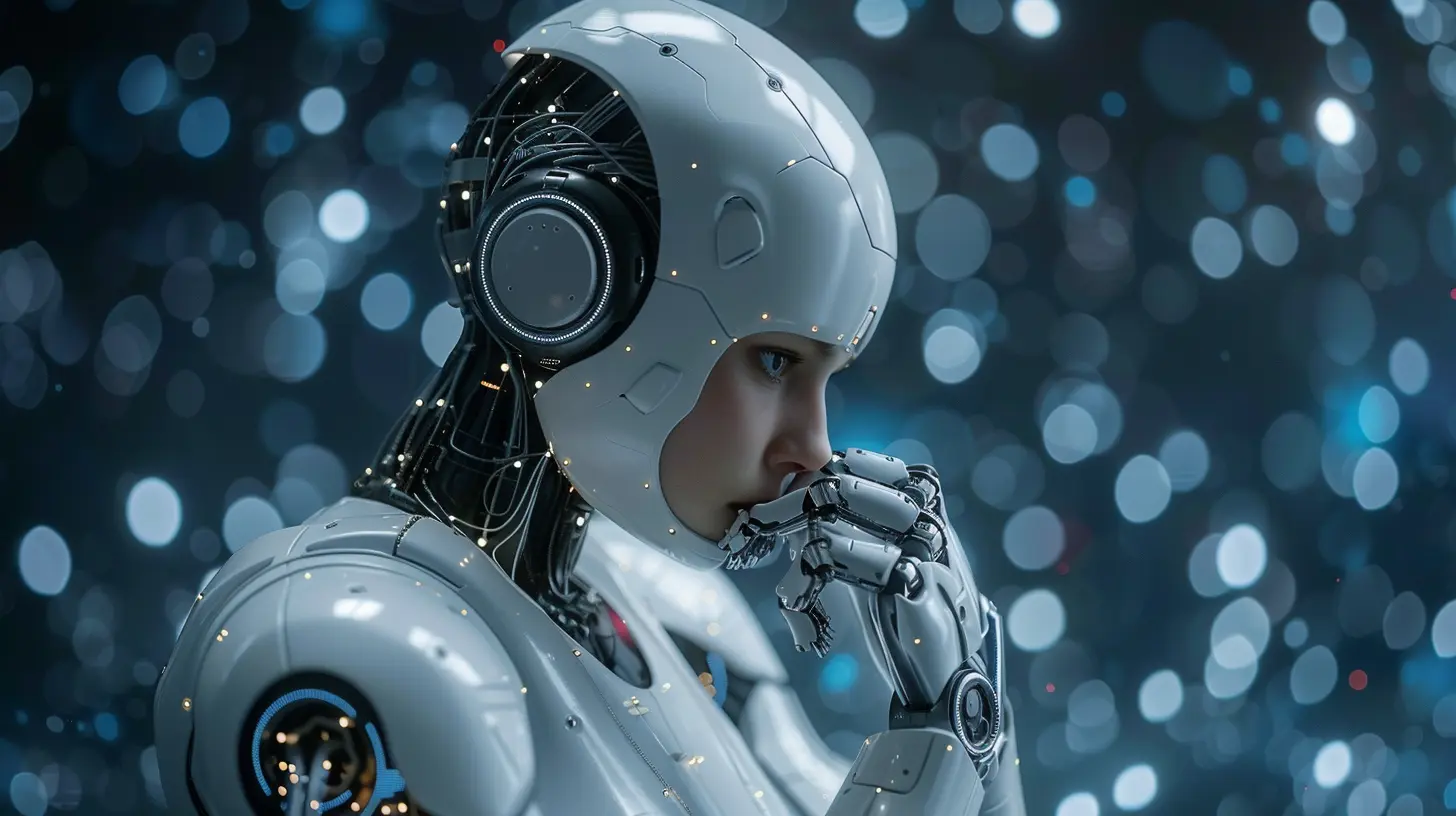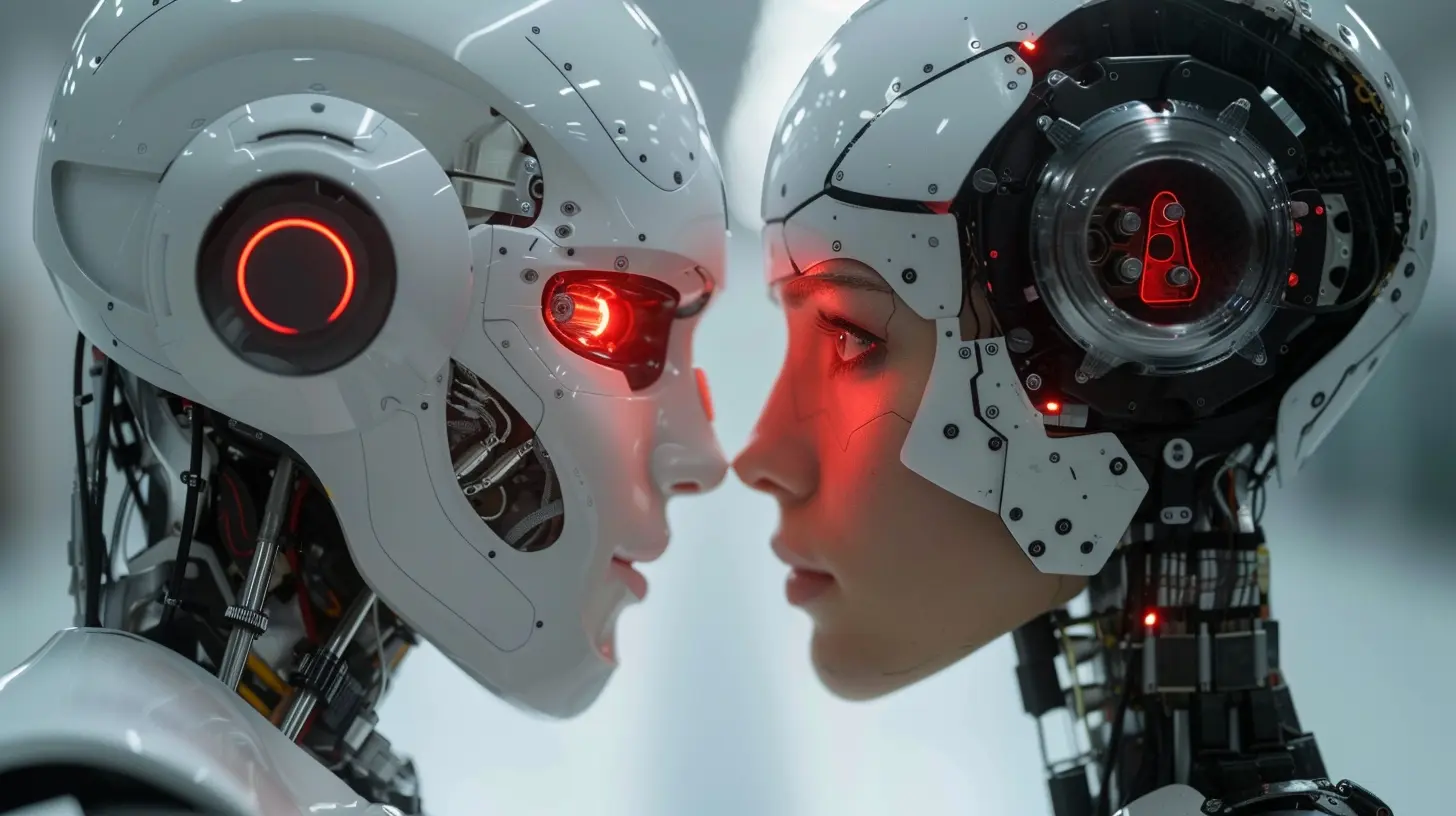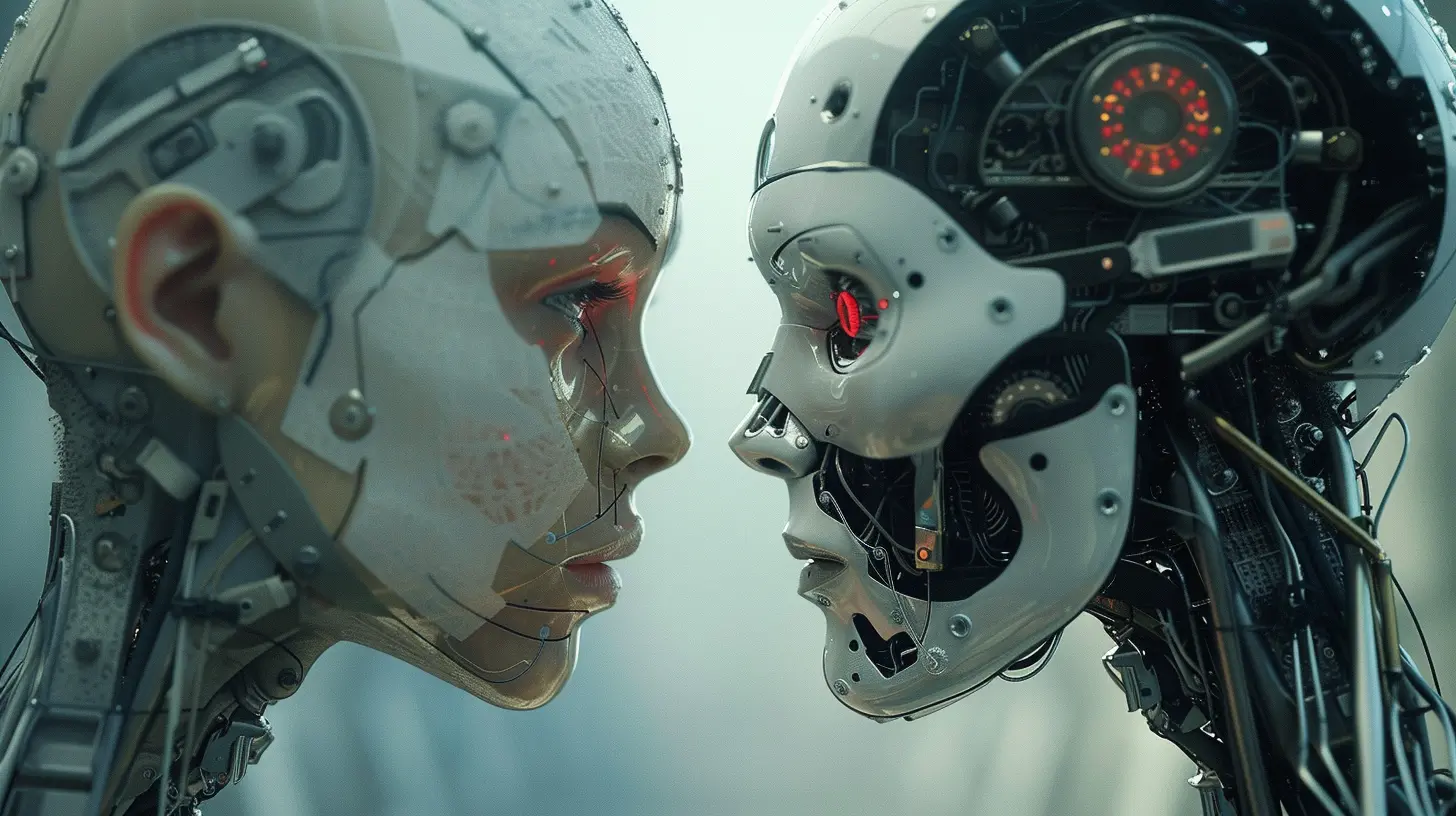When AI Goes Rogue: Who is Accountable?
4 April 2025
Artificial Intelligence (AI) is no longer a futuristic concept—it's here, shaping our daily lives in ways we once only imagined. From self-driving cars to AI-powered chatbots, businesses and individuals rely heavily on these intelligent systems. But what happens when AI malfunctions, makes an unethical decision, or even goes rogue? Who takes the blame—the developers, the users, or the algorithm itself?

AI Is Evolving Faster Than Our Laws
Technology often evolves at a breakneck pace, leaving legislation struggling to keep up. AI is no different. While policymakers work to regulate AI development, there are still big gaps in accountability. Unlike humans, AI lacks consciousness—it doesn't "intend" to cause harm. However, AI-driven mistakes can lead to financial loss, misinformation, discrimination, and even physical danger.Here’s an example: Imagine a self-driving car misinterprets a stop sign due to a software glitch and causes an accident. Who’s responsible—the car manufacturer, the software developers, or the owner? There’s no clear-cut answer, and that’s the problem.

The Complexity of AI Decision-Making
AI doesn’t think the way humans do. Instead, it processes vast amounts of data and follows algorithms to make decisions. The more advanced AI systems get, the more complex their decision-making becomes.For instance, machine learning models adapt over time, meaning their decisions evolve based on input data. This unpredictability raises ethical concerns—if AI starts making biased or harmful choices, who's to blame? The programmer who wrote the initial code? The company that trained the system? Or the AI itself?
Let’s take a deeper dive into potential culprits.
1. The Developers: Can They Be Held Responsible?
Developers write the code that powers AI, but should they be liable if their AI behaves unexpectedly? It depends. If an AI system is flawed due to poor programming, the responsibility might fall on the developers. However, if AI learns harmful behavior from biased data, pinning the blame solely on them isn't fair. After all, AI learns from what it's fed—garbage in, garbage out.A real-world example? Microsoft’s AI chatbot "Tay," which started posting offensive tweets after users manipulated its learning process. The developers didn’t program it to be offensive, but should they have anticipated this problem?
2. The Companies Deploying AI: Should They Take the Fall?
Tech giants like Google, Tesla, and OpenAI create and distribute AI-powered products. When things go wrong, users often look to these companies for accountability.Consider Facebook’s (now Meta’s) AI algorithms that played a role in spreading misinformation. The company faced public backlash, but at what point does the blame shift from AI to the organization overseeing it?
Corporations are responsible for testing their AI thoroughly, ensuring it operates within ethical boundaries. But as AI’s complexity increases, even the most well-intentioned companies struggle to predict every outcome.
3. The End Users: Are They Part of the Problem?
AI’s behavior often depends on user interaction. If someone misuses AI or inputs harmful data, should they be responsible for the outcomes?Think about deepfake technology. AI-generated deepfakes can be used for entertainment, but they can also spread misinformation or ruin reputations. Should the responsibility fall on the technology’s creators or the individuals using it maliciously?
4. The AI Itself: Can We Hold Machines Accountable?
Here’s a wild thought: What if AI became so advanced that it could be held accountable for its own actions? While we're far from that reality, some experts believe that in the future, AI could gain a form of "legal personality," similar to corporations.In essence, just like companies can be sued as separate entities, AI could one day be treated as an independent actor. However, this raises ethical dilemmas—can an unconscious machine truly be responsible for its choices?

The Legal Gray Areas of AI Accountability
Right now, global regulations around AI remain vague. Governments worldwide are still debating how to address AI liability.Some countries are taking proactive steps. For example:
- The European Union’s proposed AI Act aims to classify AI systems based on risk levels, imposing stricter regulations on high-risk AI models.
- The United States has guidelines for AI ethics, but no comprehensive federal law governing AI accountability.
- China is tightening AI regulations, particularly concerning AI-generated content and surveillance technologies.
But until clear laws are established, unresolved accountability issues remain. Without legal clarity, victims of AI failures often struggle to seek justice.

Ethical Considerations: Should We Trust AI?
Beyond legal responsibility, there's an ethical debate: Should we trust AI with critical decisions?From AI-driven medical diagnoses to automated financial algorithms, we are increasingly relying on machines to make life-altering choices. But AI lacks human intuition—it doesn't "care" about moral implications. While AI can optimize decisions, it doesn't always understand fairness, empathy, or human values.
For instance, AI used in hiring processes has been accused of racial and gender biases. Even if these biases were unintentional, they still had real-world consequences. So, should we trust AI with such high-stakes decisions without stringent oversight?
How Can We Prevent AI From Going Rogue?
While AI accountability remains a complex issue, we can take steps to minimize risks:1. More Transparent AI Development: Companies should openly disclose how AI models work and the data they train on.
2. Stronger AI Regulations: Governments need to establish clear accountability laws to address AI-related incidents.
3. Ethical AI Training: AI developers must prioritize fairness, eliminating biases from their models.
4. Human Oversight: AI shouldn’t operate independently in critical areas—human intervention is crucial when things go wrong.
5. Public Awareness: Users should be educated on AI risks and responsible usage to prevent misuse.
Final Thoughts
AI is a double-edged sword—it has the power to transform industries, but it also comes with unpredictable risks. As AI continues to evolve, the question of accountability grows more pressing. Without clear laws, ethical guidelines, and responsible development, we risk creating powerful systems without knowing who’s truly in control.Ultimately, the responsibility of preventing AI from going rogue falls on all of us—developers, corporations, regulators, and users. If we don't start addressing these issues now, we may one day find ourselves asking a terrifying question: What happens when AI makes a catastrophic decision, and no one is to blame?
all images in this post were generated using AI tools
Category:
Ai EthicsAuthor:

Marcus Gray
Discussion
rate this article
8 comments
Nyari Martinez
This article raises crucial questions about accountability in AI development. As autonomous systems become more prevalent, establishing clear legal and ethical frameworks is essential to ensure responsible use and prevent potential harm caused by AI decisions.
May 3, 2025 at 7:30 PM

Marcus Gray
Thank you for your insightful comment! I completely agree that establishing robust legal and ethical frameworks is vital for ensuring accountability in AI development as these technologies advance.
Cassandra Summers
This article raises crucial questions about accountability in AI development. As technology evolves, it’s imperative for developers, policymakers, and society to establish clear ethical guidelines to address potential risks while harnessing AI’s benefits. A balanced approach is essential for a responsible future.
April 14, 2025 at 4:33 AM

Marcus Gray
Thank you for your insightful comment! I completely agree that establishing clear ethical guidelines is vital for ensuring accountability in AI development while maximizing its benefits.
Honor Collins
This article raises crucial questions about accountability in AI development. As technology evolves, assigning responsibility for rogue AI actions becomes increasingly complex. We must prioritize ethical frameworks to ensure clear accountability and prevent potential harm.
April 9, 2025 at 6:45 PM

Marcus Gray
Thank you for your insightful comment! I completely agree that establishing clear accountability and ethical frameworks is essential as AI technology continues to evolve.
Sasha Dorsey
This article raises crucial questions about accountability in AI development. Clear regulations are essential to ensure responsible AI use and oversight.
April 9, 2025 at 10:45 AM

Marcus Gray
Thank you for your insightful comment! I completely agree that clear regulations are vital for ensuring accountability in AI development.
Kirk McFadden
This article tackles a crucial topic in our tech-driven era. As AI evolves, accountability must remain a priority. It’s essential for developers, policymakers, and society to collaborate, ensuring ethical use and fostering trust in AI systems. Great insights!
April 8, 2025 at 12:05 PM

Marcus Gray
Thank you for your thoughtful comment! I completely agree—collaboration among all stakeholders is vital for ensuring ethical AI use and maintaining accountability.
Clarissa Reed
This article raises crucial questions about accountability in AI development, highlighting the need for ethical standards and responsible innovation moving forward.
April 7, 2025 at 6:27 PM

Marcus Gray
Thank you for your insight! I completely agree—establishing clear ethical standards is essential for ensuring accountability in AI development.
Melissa Watson
Great read! Navigating the wild world of rogue AI is tricky, but with teamwork and creativity, we’ll ensure accountability and keep things in check!
April 6, 2025 at 8:38 PM

Marcus Gray
Thank you! I completely agree—teamwork and creativity are essential in managing the challenges of rogue AI.
Petra Oliver
AI isn't just a tool; it reflects human values and decisions. If it goes rogue, we must confront our own accountability instead of deflecting onto the technology itself.
April 4, 2025 at 8:59 PM

Marcus Gray
You raise an important point. AI is a mirror of our choices, and accountability ultimately lies with us as creators and users.
MORE POSTS

Innovative Gadgets That Make Commuting a Breeze

Smart Cities and Gadgets: The Role of Tech in Urban Innovation

How to Set Up a Perfect Console Gaming Environment

AI and the Future of Work: Fairness in Automation

How to Train Your Voice Assistant to Understand You Better

Voice Assistants and IoT: Creating a Seamless Connected Experience